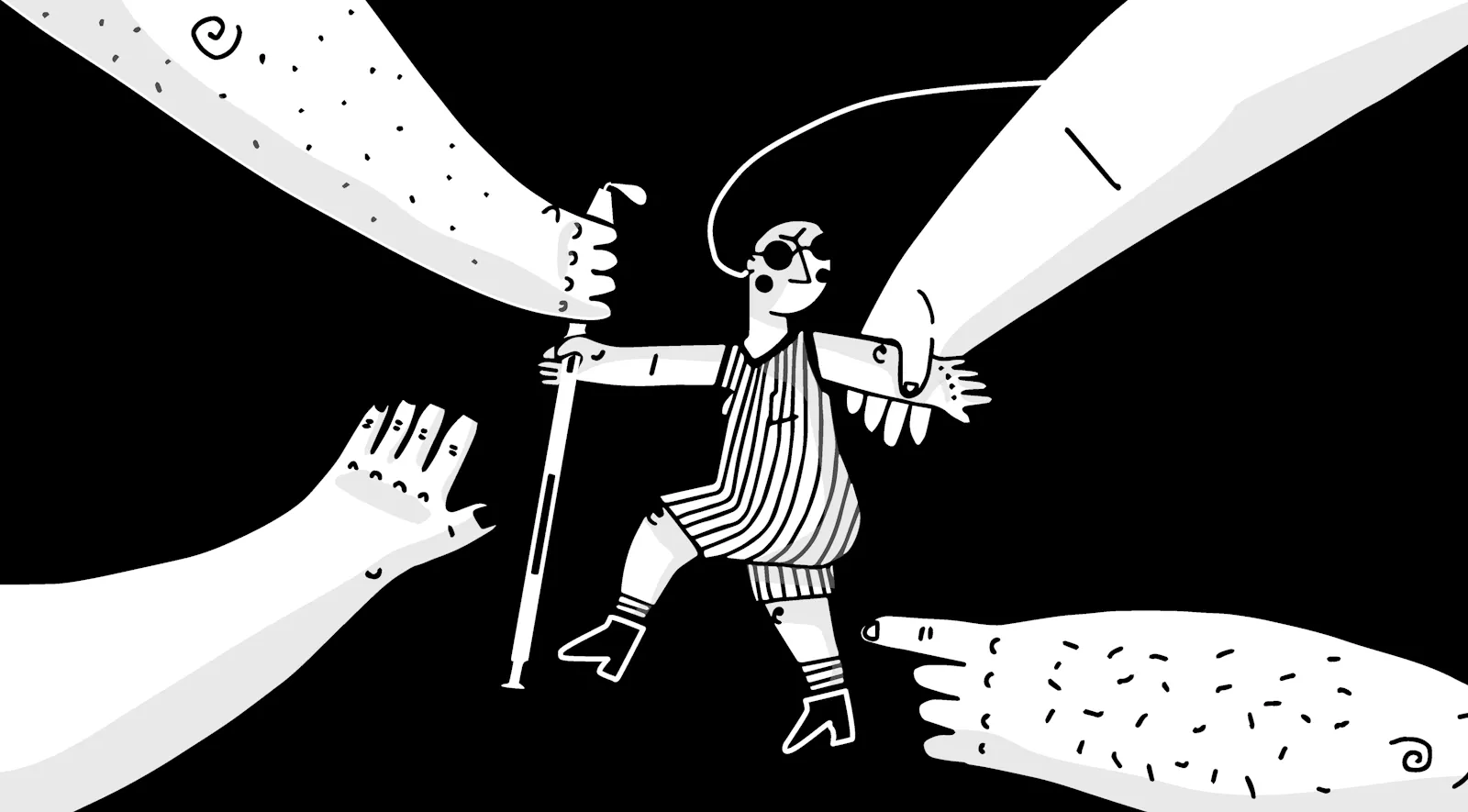
When do we pause to consider consent?
After the #MeToo movement, conversations about consent have got amplified. But do we pause to consider consent when it comes to a non-disabled person giving assistance to a disabled person? This personal narrative piece by Ria Andriani – the second story our Unbias the News team brings to you – talks exactly about this.
Editing this story was a deeply collaborative process, involving long conversations with the author. In these talks, it became clear that when someone tries to assist a person with a disability, the 'helper' comes with a lot of assumptions. They assume the disabled person needs help each time, whether the aid has been asked for or not. These assistants often don't seek consent before providing help or touching the disabled person.
To reflect the author's experience and show what unsolicited help can look like, we commissioned Viola Gesmundo to create the illustration for this piece. The author was also a part of this process where we described the illustration to her to make sure it represented her and her experience accurately. We hope it depicts how being touched without consent can be a violation, a taking away of someone's agency. This is especially true for disabled women.
That's because women with disabilitiesare twice as likely to be sexually assaulted, as the numbers have already shown in Australia (Öffnet in neuem Fenster) (where the author resides), Canada (Öffnet in neuem Fenster) and (Öffnet in neuem Fenster)Wales (Öffnet in neuem Fenster). In 2015, working in Zambia, Uganda, India and Turkey (Öffnet in neuem Fenster), Human Rights Watch found that disabled women were three times more susceptible to rape.
Despite these facts, disabled people arestill burdened with the expectation to justify themselves when they say no to help at times. Society expects them to be apologetic when refusing someone. They are only supposed to be grateful for the 'favour'.
We hope this story will help more people get rid of such presumptions, and respect disabled people's right to give or withhold consent when it comes to receiving assistance. Ria's story also mentions people who offer their help in the best possible manner, and how they do it without imposing themselves. We are hoping it will make people sensitive to the needs and personal space of persons with disabilities.
In order to make our piece more accessible, in consultation with our author, we have kept our illustration black and white. We have also embedded within the story its audio version, so people can listen to it. If you have tips about how we can make our stories more reader friendly when it comes to persons with disabilities, we hope you will write to us.
Like we always say, we are trying to unbias the news but we can't do it alone. If our work resonates with you, please take a look at our membership options (Öffnet in neuem Fenster). We hope you'll find one that suits you the best.
Collaboratively yours,

Ankita Anand - Story Editor
Let's Unbias the News! Your all-women team at Unbias the News


